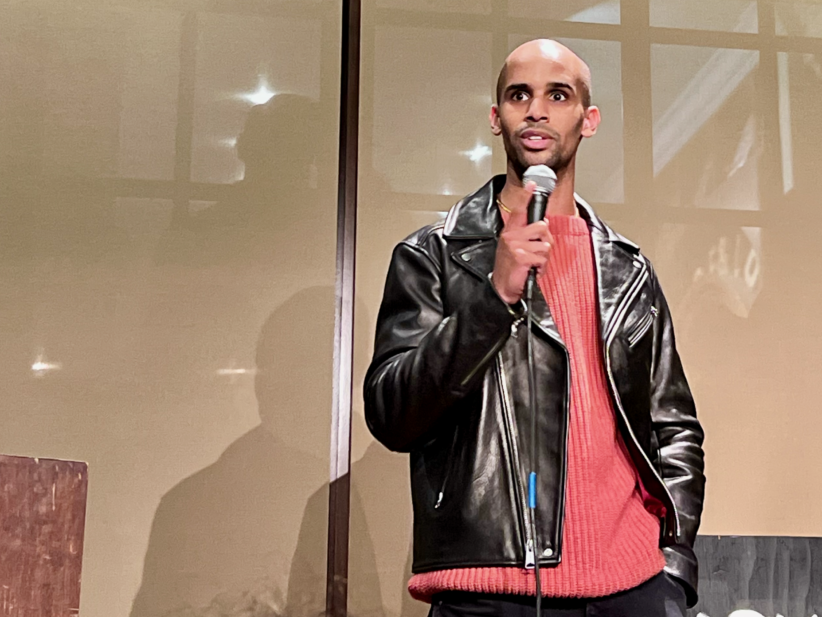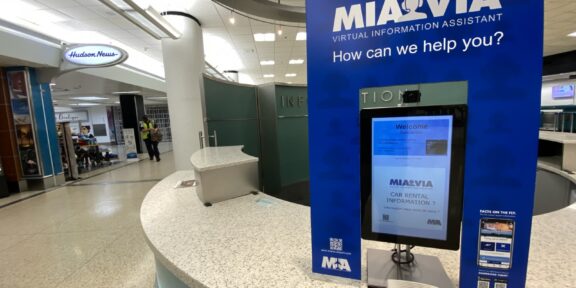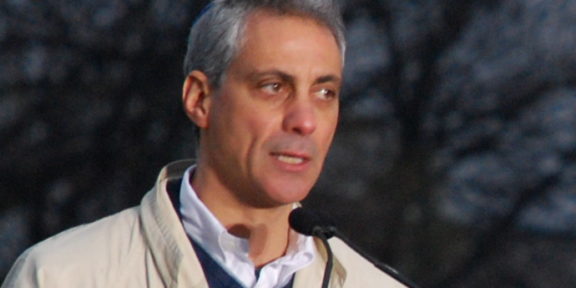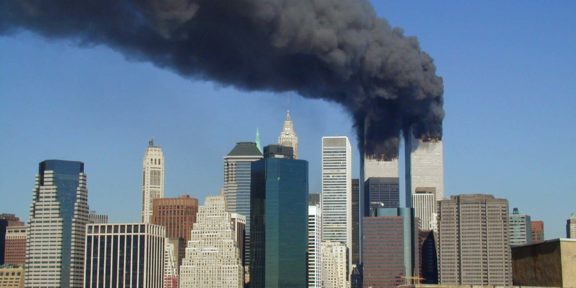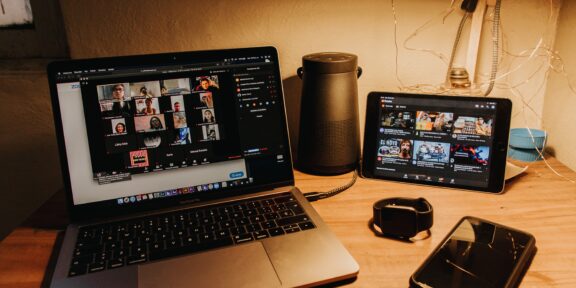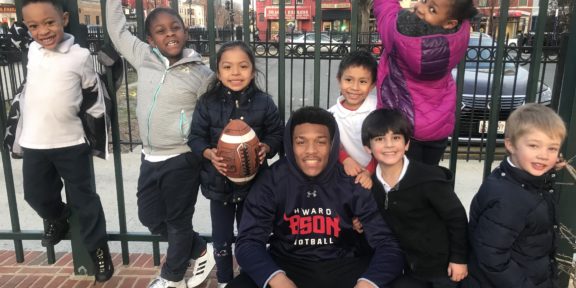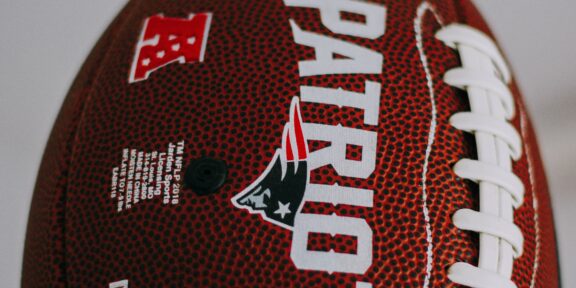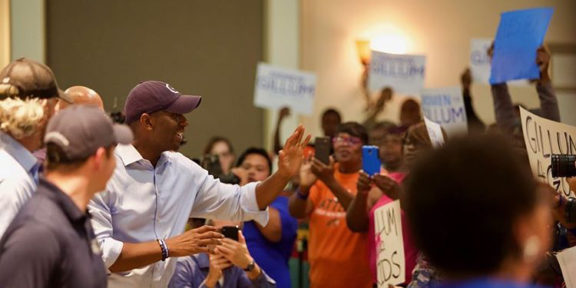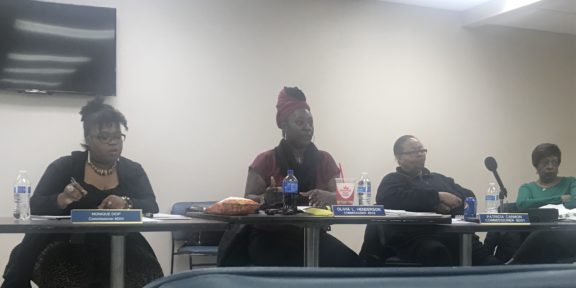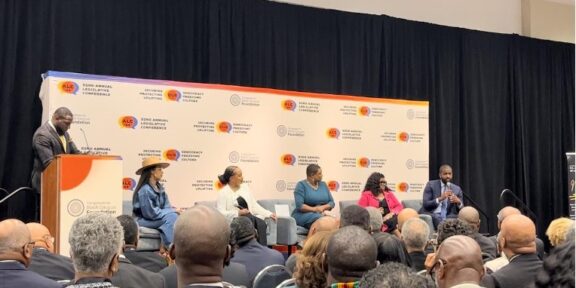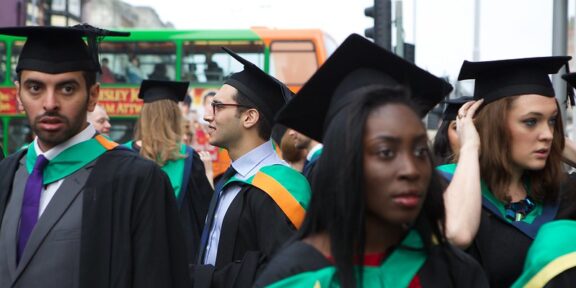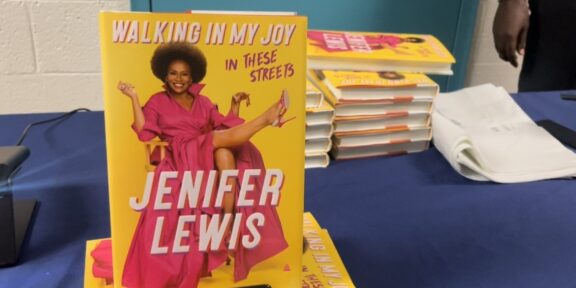By Kayla Barlow
Howard University News Service
In a room framed by olive green walls covered in paintings of famous African-Americans, contributors to “Black Love Letters,” an anthology of letters and illustrations about the different types of Black love, read their poems and letters aloud to an audience.
Stories of Black love took center stage at the mid-November event at the D.C. bookstore and restaurant Busboys and Poets.
At its center was an anthology edited and compiled by Cole Brown, a 2022 Forbes 30 Under 30 in Media honoree who has written for CNN and NBC, and Natalie Johnson, a freelance writer and former segment producer for MSNBC.
The anthology features a foreword by singer John Legend and pieces from prominent Black figures such as the Rev. Al Sharpton and more.
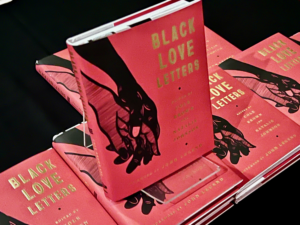
“Part of our hope is that this collection speaks to the diversity of the Black community and that everyone can find at least some part of it that resonates with them,” Johnson said during a Q&A after the event. “Also, my hope is that this book is interactive and that it encourages you to write a love letter to somebody in your life, or to yourself, to reflect on what Blackness is to you and to just pass it on.”
Johnson noted that, while she hopes the book inspires readers to write love letters, she hopes it broadens the perception of Black love as well.
“The book is broken up into a couple different sections thematically, like care, transformation, loss, ambivalence,” Johnson said. “When you hear the term love letter, you think love in the romantic sense, which can be a sustaining force in your life, but we wanted to expand the concept outside of the dyadic sense and talk about the love of community, chosen family, and the power of a village.
“We moved past the idea of romantic love, not excluding it, but trying to expand the idea and play on the concept of what a love letter could be.”
From a cushioned red stool in the front of the room, eight contributors to the book read their letters to the crowd, in which only a few seats remained unoccupied.
One contributor, Jonathan Capehart, a Pulitzer Prize-winning journalist, associate editor of the Washington Post, and MSNBC host of “The Saturday/Sunday Show with Jonathan Capehart,” shared his love letter, which was a letter to his late uncle McKinley.
In his letter, Capehart recalled the day that McKinley took him to his job a NBC, an opportunity that allowed him to make the connections that made him a journalist.
“As I get older I understand with evermore clarity how you were this essential or good man, the kind of man who would ask ‘everything okay?’ because you were the kind of person who paid attention to other people,” Capehart read. “ That fateful day in the 1980s, you could have said no to my visit or you could have easily not taken the call, but that wasn’t your way. You always had time, you always made time, and it is your example that will guide me always.”
While Capehart’s letter was a homage to a late loved one, other pieces included letters about queer love, one in which a queer man talked about grappling with the news that his lover was getting married and starting a family as he came to terms with his queerness.
Another contributor, John Manaphay, wrote his love letter to the environment, specifically to the Potomac and Anacostia rivers.
“You taught me to have faith because those who take care of us might not always be seen, but should be praised nonetheless,” Manaphy said.
After the contributors read their letters, they had a Q&A session and then a book signing where attendees were given the chance to talk both among themselves and to the contributors.
One attendee, Yemi Brown, the mother of Cole Brown, said the event was moving.
She said she had been surprised that her son had included a letter to her in it. It was titled “The Iron Woman.”
“Hearing my son read the letter to me was difficult,” Brown said. “Hearing the other authors I was just really, really moved. I think they’re all so talented and I can’t believe how they poured themselves into the love letters so deeply.”
Brown said what was difficult about hearing her son’s letter was his inclusion of fear.
“No parent wants their child to be in fear, and so that was the hardest part,” she said.
Even still, Brown said she was glad he was able to use the letter to express himself.
“[Cole] has very deep feelings, and I’m really glad he’s found writing,” she said. “I’m really proud of this project, and I’m glad he found a way to express his feelings because he’s not a person who expresses himself verbally in that way very often. So I’m glad he got this outlet.”
Brown said she found the book inspirational to herself, too.
“[The book] inspires me to be optimistic because there’s a lot going on in the world that can keep us down right now,” she said. “So I’m inspired by the fact that we have [for] generations, as Black people, love through crisis and struggles and we’ve come out on the other side.
“It opens up those possibilities even now in what seems like a pretty despairing time.”
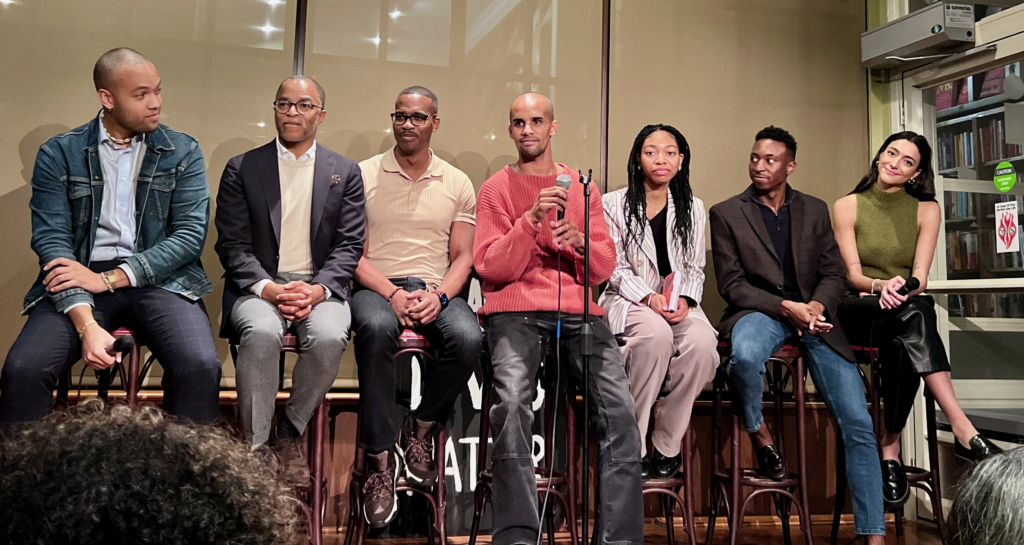
Cherri Blount, another attendee, said she was inspired, too, but her inspiration was romantic.
She noted that the queer man’s poem about not being able to be with his lover who married another person caused her to recall “a love I didn’t pursue,” Blount said.
She noted, though, that she recently attended her 50th high school reunion, where she saw the person again, for the first time in many years.
“There was definitely some attraction there,” Blount said. “[The letters I heard] inspired me. Now I’m going to write my own love letter to them.”
Attendee Maheen Kaleem said she also found the invitation to write love letters inspiring.
Kaleem, the vice president of an organization called Grantmakers for Girls of Color, said she found that there was some overlap between the work she’s doing with her organization and the pieces she heard.
“We also invite people to write love letters and demonstrate what love would look like if there was a gender expansive view, and if we envision that world and work towards that world, how much more connected and creative we’d become,” Kaleem said.
She also shared that she loved hearing the letters and experiencing the event.
“As a non-Black person, I just love being able to witness what Blackness and love at its intersection looks like, how we center that, what kind of liberation and freedom that it offers us,” Kaleem said.

